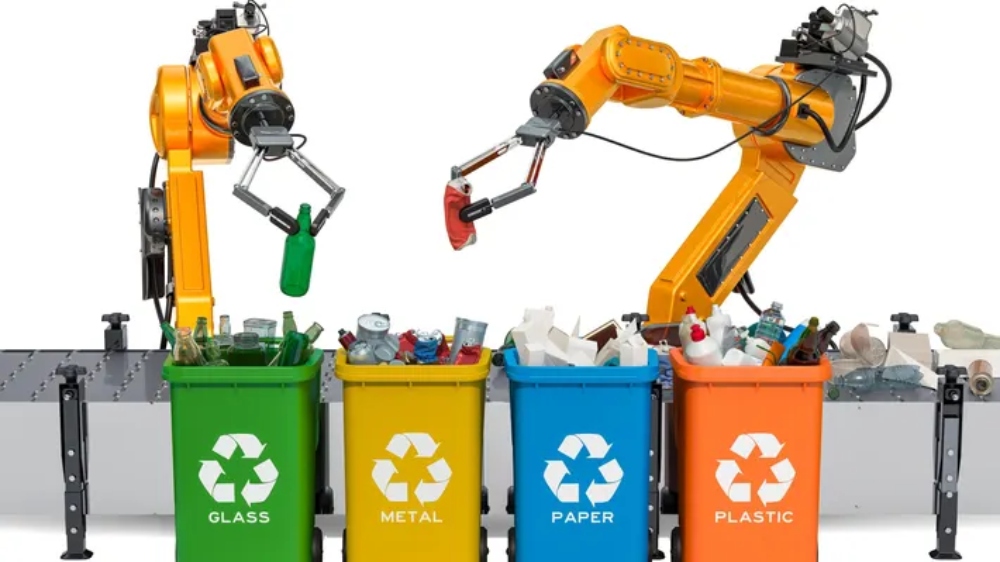Comments
- No comments found

Waste management is undergoing a significant transformation in today's tech-driven world.
As technology continues to evolve, innovative solutions are emerging to address some of the industry's most pressing challenges. From smart construction dumpster rentals that monitor fill levels to on-demand rental apps, these advancements are making waste management more efficient and sustainable than ever before.
Eco-friendly practices are also becoming a central focus. By employing technology that supports recycling and waste reduction, communities can actively participate in creating more sustainable environments. This shift not only promotes environmental responsibility but also encourages greater community involvement.
Key Takeaways
Technology revolutionizes waste management efficiency
AI and real-time systems optimize routes and predict waste trends
Eco-friendly practices foster sustainability and community involvement
Technological advancements are revolutionizing waste management, integrating AI, machine learning, IoT, and waste-to-energy systems to enhance efficiency and sustainability. These innovations are shaping the future of how waste is collected, sorted, and processed.
Smart waste management systems leverage technology to optimize waste collection and processing. Smart waste bins equipped with sensors can monitor waste levels and notify collection services when bins are full. This reduces the frequency of unnecessary pickups and ensures timely waste removal.
Pneumatic waste pipes offer an advanced solution by transporting waste through underground pipes to central collection points. This minimizes human intervention and improves efficiency in densely populated areas. These technologies collectively contribute to more effective and sustainable waste management.
AI and machine learning are crucial in modern waste management, particularly in waste sorting and collection processes. Recycling robots use AI to identify and sort recyclables from waste streams, improving the accuracy and speed of waste separation. This technology reduces contamination rates, enhancing the quality of recycled materials.
Predictive analytics powered by machine learning helps in anticipating waste generation trends. This allows for better planning and resource allocation, ensuring that waste collection services are optimized. AI algorithms can also optimize collection routes, saving fuel and reducing the carbon footprint of waste management operations.
The Internet of Things (IoT) is transforming waste management efficiency through connected devices and data analytics. Waste-level sensors embedded in dumpster rentals provide real-time data on waste volumes. This information is invaluable for scheduling waste collection more effectively and avoiding overflows.
Turning waste into a resource is a significant innovation in waste management. Waste-to-energy technologies convert non-recyclable waste into electricity, heat, or fuel through combustion, gasification, or anaerobic digestion.
Recycling technologies have advanced to make the process more efficient and sustainable. These include high-efficiency sorting machines and systems that can recycle materials previously deemed non-recyclable. Implementing circular economy principles ensures that materials are reused and recycled, reducing the demand for virgin resources and minimizing environmental impacts.
Implementing eco-friendly practices and engaging communities play a critical role in advancing waste management strategies. These efforts are essential for promoting a circular economy, enhancing public awareness, and fostering collaborative initiatives aimed at achieving sustainability.
Advocating for a circular economy involves maximizing resource efficiency and minimizing waste. Sustainable packaging options like compostable and reusable materials help reduce plastic pollution. By prioritizing the use of materials that can be remanufactured or processed through chemical recycling, you support environmental protection and the reduction of landfill waste.
Raising public awareness through educational initiatives is vital for community engagement. Launching public awareness campaigns that highlight the importance of recycling, reducing waste, and ethical considerations can significantly impact community behavior. Schools, workplaces, and public events are prime locations to promote these messages.
Collaborative efforts are key to creating a sustainable future. Partnering with local governments, NGOs, and businesses can foster a greener future. These partnerships can lead to the development of smart dumpster technologies that monitor fill levels, improving efficiency and reducing costs.
Engagement in community projects, such as urban green spaces and rural conservation areas, can be driven by collective action. Combining resources, knowledge, and efforts helps address environmental challenges more effectively.
Leave your comments
Post comment as a guest